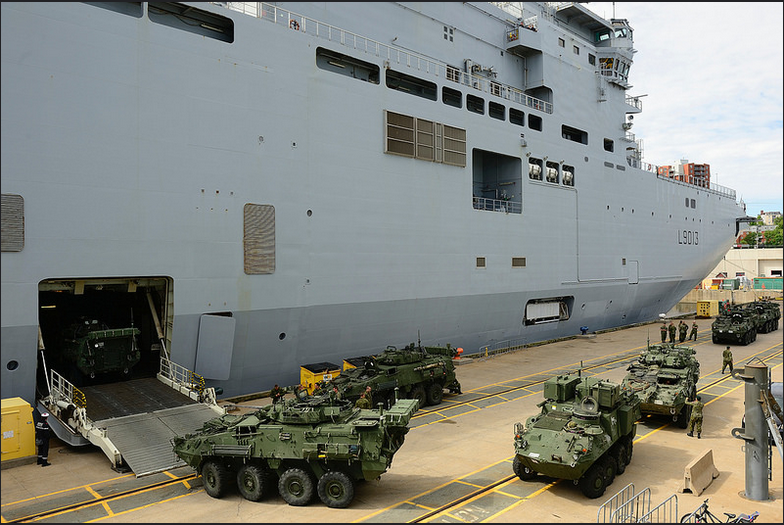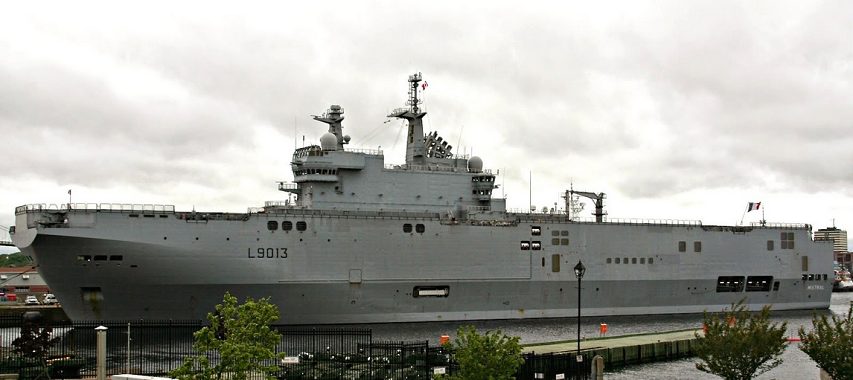The French navy is visiting Canada’s East coast this week, taking part in Exercise LION MISTRAL. David Pugliese reported on the operation a few days ago:
Approximately 200 Canadian Army soldiers from 5 Canadian Mechanized Brigade Group in Valcartier, Quebec will take part in Exercise LION MISTRAL alongside members of the French Navy and Royal Canadian Air Force from June 16-23, 2014, in Gaspé, Quebec, according to a news release from the DND.
- Canadian Army soldiers, primarily from the 1st Battalion, Royal 22e Régiment (1 R22eR), will board The Mistral, the French amphibious assault ship and helicopter carrier in Halifax on June 18;
- Canadian Army troops will conduct littoral operations, including running air-land operations and battle procedures, and establishing a helicopter landing site and a beachhead. Ex LION MISTRAL will also feature a humanitarian assistance air evacuation operation that will help train expeditionary forces to respond to humanitarian disasters;
- Ex LION MISTRAL will culminate in two disembarkation operations on a Gaspé beach on June 20-21 marking the end of the amphibious exercise. In response to a request by the town of Gaspé, the members of the 1 R22eR will also be offering a static display of their vehicles and equipment on June 21;
- More than 400 French Navy members of The Mistral and 175 of La Fayette will be participating alongside some 200 Canadian soldiers, including 20 engineers from 5 Combat Engineer Regiment from Valcartier;
On Flickr a couple of photos from yesterday, as equipment was being loaded onto Mistral in Halifax:

Members of the 1st Battalion, Royal 22e Regiment load light armored vehicles onboard the French Navy amphibious ship Mistral as part of Exercise LION MISTRAL 2014 in Halifax, Nova Scotia, June 17, 2014.
Photo: MCpl Patrick Blanchard, Canadian Forces Combat Camera IS2014-3030-06

Halifax, Nova Scotia.
FS Mistral (L-9013) is an Amphibious assault ship, and lead ship of her class. She was commissioned in 2006. She features a landing craft dock, and Helicopter facilities.
Photo: Halifax Shipping News
Additional photos by M/Cpl Blanchard were posted on the Ottawa Citizen website.




